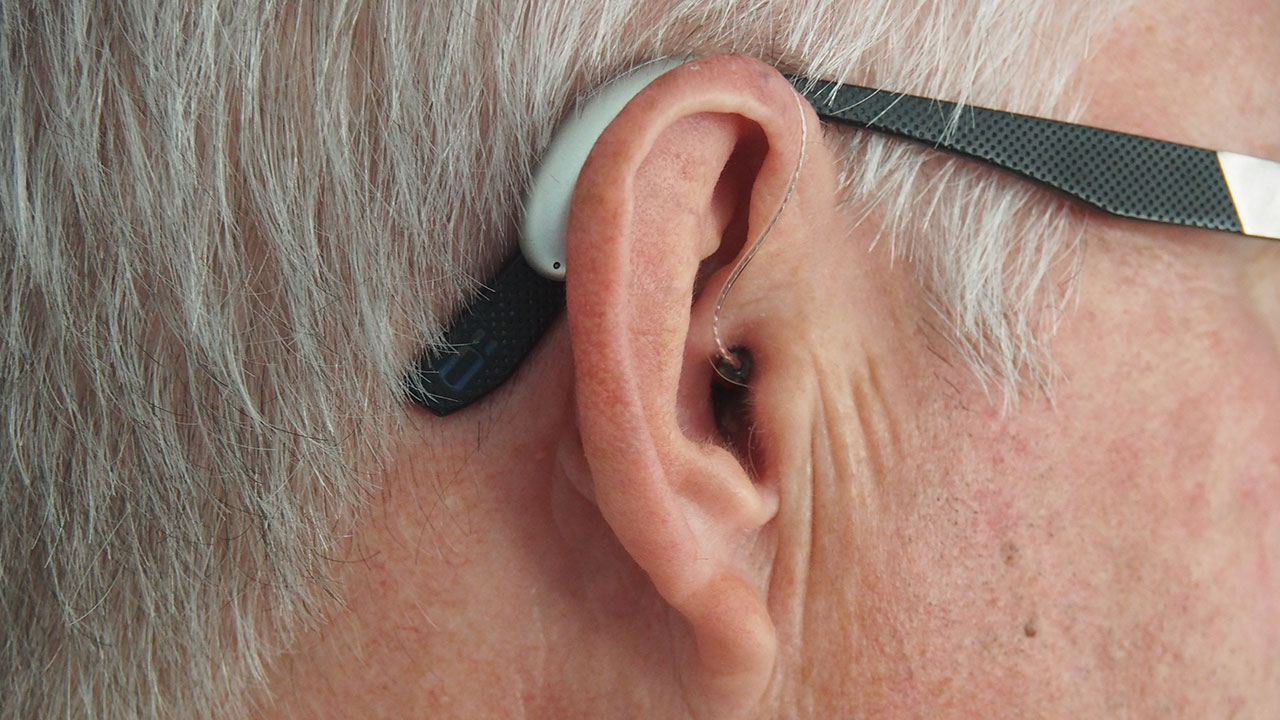Why Are My Ears Ringing? Is It Tinnitus?
Occasionally, people experience a phantom ringing, buzzing, or hissing sound in one or both of their ears. This experience only lasts a few minutes for most people. Tinnitus is often diagnosed when there is no external source causing the ringing sound, and the problem is ongoing. It can be a symptom of an underlying medical condition. Chronic Tinnitus affects millions of people of all ages each year and can be classified into four types.
Subjective Tinnitus
The first, and most common type of Tinnitus, is Subjective Tinnitus. This is sound that only the person experiencing can hear. It happens while in the absence of acoustic noise, though an overexposure to noise causes it. The sensation of Subjective Tinnitus may come and go.
Neurological Tinnitus
Disorders such as Meniere's Disease (a condition of the inner ear) are often culprits for this form of Tinnitus. It affects the auditory functions of the brain.

Somatic Tinnitus
This type of Tinnitus is a sub-type of Subjective Tinnitus and is related to the sensory system. Muscle spasms can trigger it.
Objective Tinnitus
The most rate type is objective Tinnitus. A doctor can listen to this condition upon examination since it is often in sync with the patient's heartbeat.
All types of Tinnitus can have multiple symptoms and causes, which will be discussed below. If you or a loved one is experiencing Tinnitus, it's recommended to schedule an appointment with an audiologist who can diagnose any underlying conditions that may be causing the problem. From there, you can work to find a solution that fits your lifestyle.
SCHEDULE AN APPOINTMENT
What Are the Symptoms And Causes Of Tinnitus?
Tinnitus sounds like ringing or buzzing noises for most people, but it can also sound like clicking, humming, hissing, whooshing, or roaring. As long as there's no external sound causing what you're hearing, all of these sounds are symptoms of Tinnitus. While these symptoms are easily recognizable as Tinnitus, there are many root causes of this condition, including:

Long-Term or Repeated Exposure to Loud Noises
If you spend your day working around loud machinery or heavy equipment like construction tools or working as a professional musician, you may start to experience Tinnitus. Listening to loud music often, primarily through headphones or earbuds, can be a cause as well. Short-term exposure to loud noises like concerts or gunshots may cause temporary Tinnitus, but this will likely go away on its own. Exposure to loud noises, both short- and long-term, should be avoided, as they can cause permanent damage to the delicate structures within your ears.
Age-Related Hearing Loss
Many people begin to experience some degree of hearing loss (known as presbycusis) as they age, usually starting around age 60. Hearing loss is known to be one of the most common causes of Tinnitus, and many people experience Tinnitus and hearing loss in conjunction.
Earwax Blockage
Some people produce more earwax than necessary. Earwax is vital for our bodies because it traps dirt that enters the ear canal, but when you have too much earwax, it can cause temporary hearing loss or irritation of the eardrum, resulting in Tinnitus.
Changes in Ear Bones
Sometimes, the bones in your middle ear can stiffen and affect your hearing. This is usually genetic and runs in families.
This rare condition causes vertigo, Tinnitus, and hearing loss, and usually only affects one ear.
Medication Side Effects
Sometimes, medications that you may be taking to treat another condition have Tinnitus as a side effect. This includes common drugs like aspirin and antibiotics, along with some antidepressants and cancer medications.
Other Medical Conditions
Several other medical conditions may cause Tinnitus, like nerve problems, head or neck injuries, or issues with the temporomandibular joint, which is the joint on each side of your head in front of your ear that connects your skull with your jaw.
High Blood Pressure
When someone has high blood pressure, their blood pumps harder through veins. In veins close to the ear, this can cause a whooshing or rushing sound associated with Tinnitus.
Ear Infection
If you're experiencing ear pain or a feeling of fullness along with Tinnitus, this could be a sign of an ear infection. This Tinnitus can result from congestion in your sinuses, which is easily treated by your doctor.
What Factors Increase Your Risk of Tinnitus?
On some occasions, Tinnitus is simply a result of age-related hearing loss, so merely being over age 60 can increase your risk. But there are some other, more avoidable factors that increase your risk as well. If you work around loud noises often, you have a greater chance of experiencing Tinnitus. In addition, regularly consuming nicotine, caffeine, and some herbal supplements can lead to Tinnitus in some people. Caffeine and nicotine can affect blood pressure, as do high levels of stress, so avoiding these can decrease your risk.
What Are the Side Effects of Tinnitus?

For some people, living with Tinnitus is merely annoying. For others, it's unbearable and life-limiting. For this reason, many of the unpleasant side effects associated with Tinnitus are psychological. No matter if your Tinnitus is mild or severe, it absolutely affects the quality of your life. Some people have trouble sleeping because of their Tinnitus, which can lead to fatigue, work issues, or problems in their daily lives. A constant ringing or buzzing in your ears can make it quite challenging to concentrate on daily tasks and do even basic things like hold a meaningful conversation. All of these side effects can make it difficult to succeed in your career, at school, and in your relationships, and can even make it hard to find enjoyment in life.
Depression affects several people with Tinnitus as well. Because in many cases, Tinnitus is a condition that people must learn to live with, it can lead to hopelessness and feelings of despair. Treating any psychological symptoms of Tinnitus is an essential step in improving the patient's quality of life. It can also help build coping skills to help the patient deal with negative feelings.
How Can You Prevent Tinnitus?
Tinnitus Caused by a Medical Condition
You cannot always prevent Tinnitus. If you experience Tinnitus due to a medical condition or age-related hearing loss, there isn't much that you can do to avoid these things from happening.
Tinnitus Caused by Exposure to Loud Noise
But if you are around loud noises often, you need to use hearing protection. Suppose you find that you are consistently around a noise level where it's challenging to have a normal conversation. In that case, this is a sign that you should be using ear protection like earplugs or over-the-ear hearing protecting equipment or that you should move away from the noise source. And if you listen to loud music often, try turning it down to a safe level whenever you can.

Tinnitus Caused by Health Conditions
In general, taking care of your physical and mental health can also prevent Tinnitus. Eating well, exercising regularly, getting enough sleep, and managing stress can lower your blood pressure and keep it healthy. This can help to prevent high blood pressure and blood vessel disorders that can lead to tinnitus symptoms.
When Should You See A Doctor for Tinnitus?
If you notice Tinnitus in your day-to-day life, it can be alarming, but it is not necessarily something to immediately worry about in most cases. Even if you are not experiencing any other symptoms, it a good idea to tell your primary care provider about your Tinnitus so they can refer you to an audiologist. When you finally see an audiologist, tell them what specific kinds of sounds you are hearing, when your symptoms started, and if any factors make it worse.
If you find that your Tinnitus came on very suddenly, is severely affecting your quality of life, or is accompanied by any other symptoms like dizziness, you want to see a doctor or audiologist as soon as you can. A professional can help determine if there is an underlying cause of your Tinnitus that can be treated or if your Tinnitus is a symptom of something more serious. Also, they may be able to recommend a specialist who can better treat your condition.
How Does an Audiologist Test for Tinnitus?
When trying to determine your Tinnitus cause, your audiologist may go through a few different steps. First, they will likely give you a hearing exam. During this test, you will sit in a soundproof room and put on a pair of earphones. The audiologist will then play sounds at different volume levels and pitches and ask you to move when you hear the sounds. The audiologist will compare your results with other people your age to determine if you're experiencing hearing loss and rule out other causes for your Tinnitus.
After the hearing exam, your audiologist may also ask you to perform specific tasks like moving your eyes back and forth, clenching your jaw, or moving your neck or limbs. Sometimes, when Tinnitus worsens with movements, it may indicate an underlying disorder. If your audiologist notices specific symptoms, they may send you in for further testing like an MRI or CT scan.
The audiologist will also take note of what your Tinnitus sounds like to you. For example:

- If you hear a clicking sound, this could result from muscle contractions, while wooshing or humming sounds often originate in your veins.
- If you hear your pulse regularly, blood vessel problems or ear canal blockages could be the cause of amplified heartbeat.
- High-pitched ringing is a sign that your Tinnitus is age-related or is a result of hearing loss.
- In contrast, a lower-pitched ringing will sometimes indicate an attack of vertigo in someone with Meniere’s disease.
Can You Get Rid of or Cure Tinnitus?

Once your doctor or audiologist can identify the cause of your Tinnitus, you can begin to talk about how to treat it. If your Tinnitus is a symptom of an underlying condition like a blockage or cyst, this is easily treated. If your Tinnitus is caused by a medication you're taking, it will most likely go away once you stop taking the drug. However, in many cases, a doctor cannot cure Tinnitus. It may fluctuate or come and go over time, but for many people, Tinnitus is simply a condition that they must live with. And if you find that your Tinnitus gets worse when you consume alcohol, nicotine, or caffeine, find the support you need to quit using these substances.
If your Tinnitus is associated with hearing loss, hearing aids may be able to provide some help. Sometimes, they can block out tinnitus sounds you're experiencing. Masking devices are worn similarly to hearing aids and will play a continuous low level of white noise that can mask the Tinnitus you're hearing.
What is the Treatment or Management for Tinnitus?
The best tinnitus treatment depends on the symptoms you have, but it may involve learning to live with the condition in most cases. While some people's Tinnitus's prognosis can make them feel powerless, learning to cope with Tinnitus is essential to improving your quality of life. If you find that Tinnitus is getting in the way of your day-to-day life, it may be time to speak with your doctor about some ways you can cope with your condition. For some, this may require talking to a therapist or counselor to help them deal with feelings of depression, hopelessness, or anxiety. Cognitive Behavioral Therapy can help you manage your emotions. Practicing meditation can improve your focus and concentration and make it easier to learn to live with Tinnitus.
It can also be helpful to join a support group for people who are living with Tinnitus. Attending a support group can remind you that you aren't alone in your struggle, and it can connect you with people who understand what you're going through. And for some people, it can help them learn about new coping strategies that have been successful for other members.

Some evidence supports that certain types of antidepressants can help to reduce tinnitus symptoms. However, these medications can cause unwanted side effects for some people and have shown limited success. No drug or treatment can completely cure Tinnitus, though research is being done into new treatment and management forms.
Does Tinnitus Get Worse or Lead to Hearing Loss?
Suppose you are beginning to experience the symptoms of Tinnitus. In that case, you can prevent it from getting worse by always wearing ear protection when you're around loud noises or by avoiding loud noises altogether. Turn down your music, stay away from loud concerts, and always wear over-the-ear hearing protection when working with noisy equipment, power tools, or hunting with guns.
Over time, you may find that you get used to your Tinnitus and can even learn to ignore it. For many people, the best way to learn to live with their Tinnitus is to try not to let it occupy their thoughts and focus on other things. This is one reason why meditation can be so helpful because it can help you learn to redirect your thoughts.
Do Home Remedies Help?
There are a few home remedies that may be able to alleviate the symptoms of Tinnitus. Of course, results vary with these remedies, so it's always best to see what works for you. If you're having trouble concentrating or sleeping because of your Tinnitus, playing quiet music, an air conditioner, a gentle fan, or a white noise player may be able to block out the ringing or buzzing sound. In addition, a melatonin supplement can make it easier to fall asleep quicker.
Suppose you suspect that an overabundance of earwax blockage may cause your Tinnitus. In that case, there are a few over-the-counter ear drops that can you can purchase at your local pharmacy to help gently loosen and soften wax, making it easier to remove at home. Your doctor may also recommend an at-home ear irrigation kit. And in the case of an ear infection, a warm compress can help alleviate congestion that may cause Tinnitus.
What Type of Doctor Can Help Tinnitus?
An ear, nose, and throat specialist (also known as an ENT or otolaryngologist) is most often recommended if you're experiencing Tinnitus. This doctor can help diagnose and treat any underlying conditions causing your Tinnitus. On the other hand, if your Tinnitus is not the result of disease or illness and is instead a symptom of hearing loss, an audiologist will help you find the solution that works best for you. An audiologist is a highly-trained individual specializing in diagnosing, testing for, evaluating, and treating non-medical hearing loss.
Audiologists will be able to administer a hearing test to see if you're experiencing hearing loss. If they find that you have hearing loss, they can help you determine if a hearing aid is a right solution. Many people with Tinnitus find that hearing aids help relieve their symptoms, and today's hearing aids are tiny, efficient devices. Eagle Hearing is proud to offer the latest in hearing aid technology.
Audiologists at Eagle Hearing Are Your Expert in Tinnitus
If you're experiencing a ringing in your ears that won't go away, you don't have to struggle alone. Dr. Abe Vore of Eagle Hearing specializes in audiology and can match you with the right hearing aid for you. Our team has years of experiencing helping tinnitus sufferers find relief from their condition through the use of hearing aids or tinnitus maskers. We can also fit you with custom ear protection if you work in a loud environment and reduce your tinnitus risk. If you're looking for audiology services in the Eagle, Boise, or Meridian, Idaho area, contact us at Eagle Hearing for more information or try our online hearing screening.